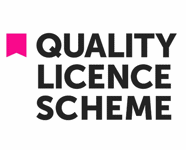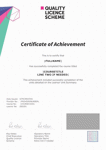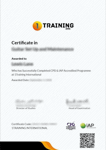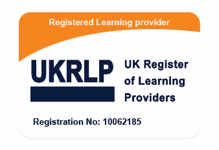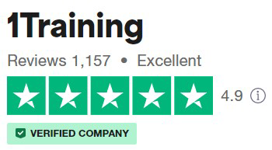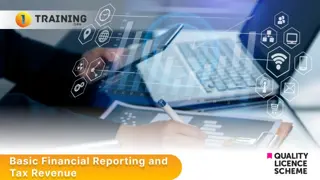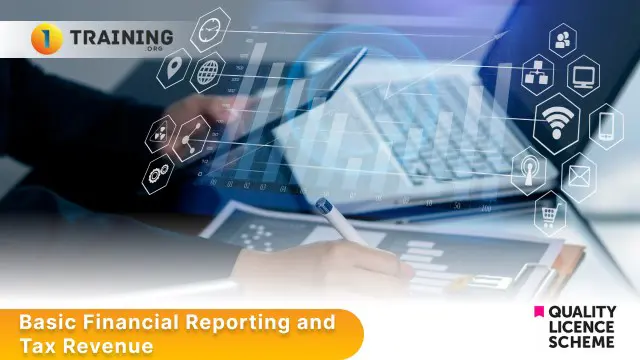
Basic Financial Reporting and Tax Revenue
Endorsed Certificate | Certified Unit Summary | 365 Days Access Period
1 Training
Summary
- Exam(s) / assessment(s) not included in price, and must be purchased separately
- TOTUM card available but not included in price What's this?
Add to basket or enquire
Overview
Diploma in Basic Financial Reporting and Tax Revenue - Level 4
Financial reporting is the process of disclosing financial information to the management, stakeholders and other interested parties of an organisation. Management of financial reporting, together with tax, falls under the finance or accounting department, which has to be properly governed to help the management make effective decisions. Organisations look for skilled and qualified individuals to take over this role, and this Diploma in Financial Reporting – Level 4 Certification has been developed to mold you into one.
This Financial Reporting and Tax diploma comprises of learning materials that will thoroughly familiarize you with the accounting and financial reporting regulations. You will get to learn about LASB framework, IAS 2 inventories and IAS 38 intangible assets, followed by modules that will examine the IAS19 employee benefits. The statement of financial position, which is used to assess the monthly financial health of a business, will also be duly explained through the modules, making this course a wonderful learning opportunity for aspiring individuals and professionals.
By delving further, you will get to examine various taxes that you will be required to work with such as progressive tax, regressive tax, proportional tax, property tax, Vat, etc. This course will also focus on helping you manage inventories, cash, receivables, payables and investment, followed by an insight into the ethics governing financial reporting and corporate governance.
The course has been endorsed under the Quality Licence Scheme. This means that Global Edulink* has undergone an external quality check to ensure that the organisation and the courses it offers, meet defined quality criteria. The completion of this course alone does not lead to a regulated qualification* but may be used as evidence of knowledge and skills gained. The Learner Unit Summary may be used as evidence towards Recognition of Prior Learning if you wish to progress your studies in this subject. To this end the learning outcomes of the course have been benchmarked at Level 4 against level descriptors published by Ofqual, to indicate the depth of study and level of demand/complexity involved in successful completion by the learner.
The course itself has been designed by Global Edulink* to meet specific learners’ and/or employers’ requirements which cannot be satisfied through current regulated qualifications. The Quality Licence Scheme endorsement involves robust and rigorous quality audits by external auditors to ensure quality is continually met. A review of courses is carried out as part of the endorsement process.
*1Training is an approved reselling partner for Quality Licence Scheme courses under Global Edulink
*Regulated qualification refers to those qualifications that are regulated by Ofqual / CCEA / Qualification Wales
Achievement
Course media
Description
When you enroll for this programme, you will receive a second CPD accredited course for free from 1Training. You have the opportunity to choose your preferred course from a recommended list, and earn more CPD Points/Hours to your portfolio.
Learning Outcomes
- Familiarize with the accounting and financial reporting regulations
- Learn about LASB framework, IAS 2 inventories and IAS 38 intangible assets
- Understand how to produce accurate financial statements
- Get into terms with the basic principles of the statement of financial position
- Discover the IAS19 employee benefits
- Examine the various tax types such as progressive tax, regressive tax, proportional tax, property tax, Vat, etc
- Learn the ethics governing financial reporting and corporate governance
- Manage inventories, cash, receivables, payables and investments
COURSE CURRICULUM
Module 01 : Understanding the Accounting and Financial Reporting Regulations
- Regulation of published accounts
- Elements of a framework for published accounts
- International Accounting Standards Board (IASB)
- International Organisation of Securities Commisions (IOSCO)
Module 02 : Understanding the IASB Framework
- Conceptual frameworks
- Objectives of financial statements
- Underlying assumptions
- Qualitative characteristics of financial information
- The Elements of Financial Statements
- Capital maintenance
Module 03 : Understanding the IASB Framework
- Conceptual frameworks
- Objectives of financial statements
- Underlying assumptions
- Qualitative characteristics of financial information
- The Elements of Financial Statements
- Capital maintenance
Module 04 : Introduction to the IAS 2 Inventories and None Current Assets
- Introduction
- Recording inventory
- Measuring inventories
- Components of cost
- Disclosures for inventories
Module 05 : IAS 38 Intangible Assets
- IAS 38 Intangible Assets
- Recognition
- Measurement
- Accounting for amortization
- Impairment
- Retirement and disposals
- Intangible assets: Example
Module 06 : Creating Producing Financial Statements
- How to prepare a set of Financial Statements
- Statement of Comprehensive Income
- Statement of Financial Position
Module 07 : The Cash Flows Statement
- The Cash Flows Statement
- Cash flow from operating activities
- Cash flow from investing activities
- Cash flow from financing activities
- The Statement of Cash Flows: Full Statement
- Importance of the statement of cash flows
Module 08 : Introduction to Group Accounts
- Introduction to Group Accounts
- Parent’s separate financial statements
- Group financial statements
- Pre-and post - acquisition reserves
- Acquisition accounting: goodwill and fair values
- Chapter Summary
Module 09 : Basic Principals of the Statement of Financial Position
- Overview
- Intra-group trading
- Unrealized profits
- Other aspects
- Fair value measurement
- Non-controlling interests
- Mid-year acquisitions
- Chapter summary
Module 10 : What is Income Statement
- Overview
- Fully owned subsidiary
- Investment: Dividends
- Investment: Loans and preference shares
- Intra-group trading: sales and purchases
- Other adjustments
- Mid-year acquisitions
- Chapter summary
Module 11 : Definition of Associate
- Overview
- Associates: the basics
- Associates: accounting treatment
- Trading with associates: unrealized profit
- Summary rules
- Chapter summary
Module 12 : Understanding the Accounting Standards
- IAS 8: Accounting policies, changes in accounting estimates and errors
- IAS 10: Events after the reporting period
- IAS 21: The effects of changes in foreign exchange rates
- IAS 34: Interim financial reporting
- IFRS 8: Operating segments
Module 13 : IAS19 Employee Benefits
- Overview
- Short -term benefits
- Defined contribution pension plans
- Defined benefit plans
- Chapter summary
Module 14 : Introduction to Tax
- Introduction
- Taxes: paid where and on what?
- Taxes: paid by whom?
- Taxes: sources and rules
- Taxes: rate structures
- Taxes: administration
- The tax gap, avoidance and evasion
Module 15 : Identify the Tax Types
- Identify the Tax Types
- Tax on trading income
- Taxes on capital
- Tax computation
- Value added tax (VAT)
- Employee taxes
- Interaction of corporate and personal income tax
Module 16 : Introduction to the International and Financial statement Taxation
- Introduction
- International tax
- Taxation in the Financial statements
- Current taxation
- Disclosure requirements
Module 17 : Who is an External Auditor
- Introduction
- The need for audit
- Roles of the external auditor
- The audit
- Audit opinion
- The audit report
- Why have an external audit?
Module 18 : Understanding the Corporate Governance
- Understanding the Corporate Governance
- Principles of corporate governance
- The UK Code of Corporate Governance
- Corporate governance –Internationally
- Corporate governance in the public sector
Module 19 : Introduction to Ethics and Financial Reporting
- Ethics
- Laws, regulations and ethical behaviour
- Values and attitudes for professional accountants
- CIMA ethical principles and financial reporting
- Section 320 CIMA Ethical Code
- How to approach ethical issues
Module 20 : Working Capital Management
- Working Capital Management
- Working capital (or cash operating) cycle
- Working capital ratios
- Liquidity ratios
- Comparison of working capital and liquidity ratios
Module 21 : How to Manage Receivables and Payables
- Introduction
- Receivables
- Managing receivables: debt collection
- Payables
Module 22 : Efficient Manage of Inventories and Cash
- Managing inventories
- The Economic Order Quantity (EOQ)model
- Inventory control systems
- Cash flow forecasting
- Cash budgets
- Cash management models
Module 23 : Introduction to the Short-Term Finance and Investment
- Introduction
- Approaches to financing
- Short-term financing methods
- Short-term finance for international trading
- Short-term investment
Access Duration
The course will be directly delivered to you, and you have 12 months access to the online learning platform from the date you joined the course. The content will be accessible to you 24/7. The course is self-paced and you can complete it in stages, revisiting the lectures at any time.
Method Of Assessment
This online course is assignment-based with learners being assessed upon the submission of a series of assignments. Once you successfully submit the assignments, students will gain a professional qualification. The assignments must be submitted to the instructor through the online learning portal. The assignments will be reviewed and evaluated, with feedback provided to the student on how well they have fared.
Please Note: Additionally, a total of £49 is charged for the assessment and certificate, and you need to pay that when submitting your assessments only (It is not required to pay initially upon registering). This payment can be made in 02 installments.
Certification
The Quality Licence Scheme will provide successful learners with a Certificate of Achievement and a Learner Unit Summary, which lists the units completed by the learner through this course.
Accredited Body
The Quality Licence Scheme has long-established reputations for providing high quality vocational qualifications across a wide range of industries. The Quality Licence Scheme combines over 180 years of expertise combined with a responsive, flexible and innovative approach to the needs of our customers.
Renowned for excellent customer service, and quality standards, The Quality Licence Scheme also offer regulated qualifications for all ages and abilities post-14; all are developed with the support of relevant stakeholders to ensure that they meet the needs and standards of employers across the UK.
Who is this course for?
The diploma in Basic Financial Reporting and Tax Revenue is ideally suited for,
- Individuals aspiring to get into the finance or accounting industry
- Accounting or finance professionals looking to progress in their career
- Anyone interested in learning about financial reporting and tax revenue
Requirements
The Basic Financial Reporting and Tax Revenue course requires no formal qualifications and this certification is open to everyone
Career path
This Basic Financial Reporting and Tax Revenue course would be beneficial for the following careers:
- Accountant – £28,565 per annum
- Tax Accountant – £29,001 per annum
- Accounts Assistant – £18,883 per annum
- Accounts Executive – £22,243 per annum
- Staff Accountant – £24,115 per annum
- Accounting Assistant – £20,352 per annum
Questions and answers
Currently there are no Q&As for this course. Be the first to ask a question.
Reviews
Currently there are no reviews for this course. Be the first to leave a review.
Legal information
This course is advertised on reed.co.uk by the Course Provider, whose terms and conditions apply. Purchases are made directly from the Course Provider, and as such, content and materials are supplied by the Course Provider directly. Reed is acting as agent and not reseller in relation to this course. Reed's only responsibility is to facilitate your payment for the course. It is your responsibility to review and agree to the Course Provider's terms and conditions and satisfy yourself as to the suitability of the course you intend to purchase. Reed will not have any responsibility for the content of the course and/or associated materials.

